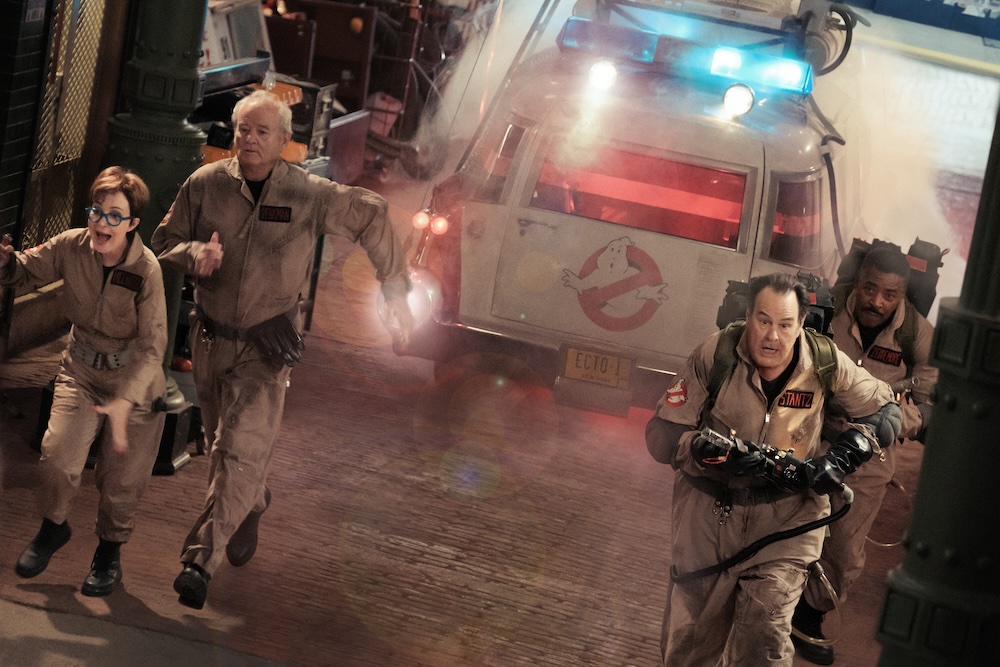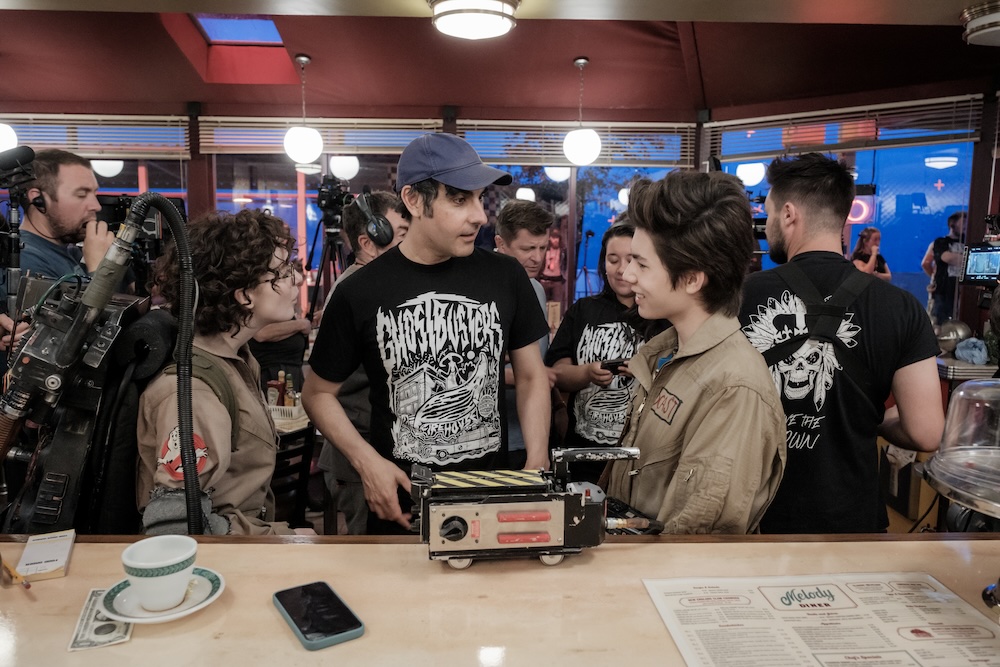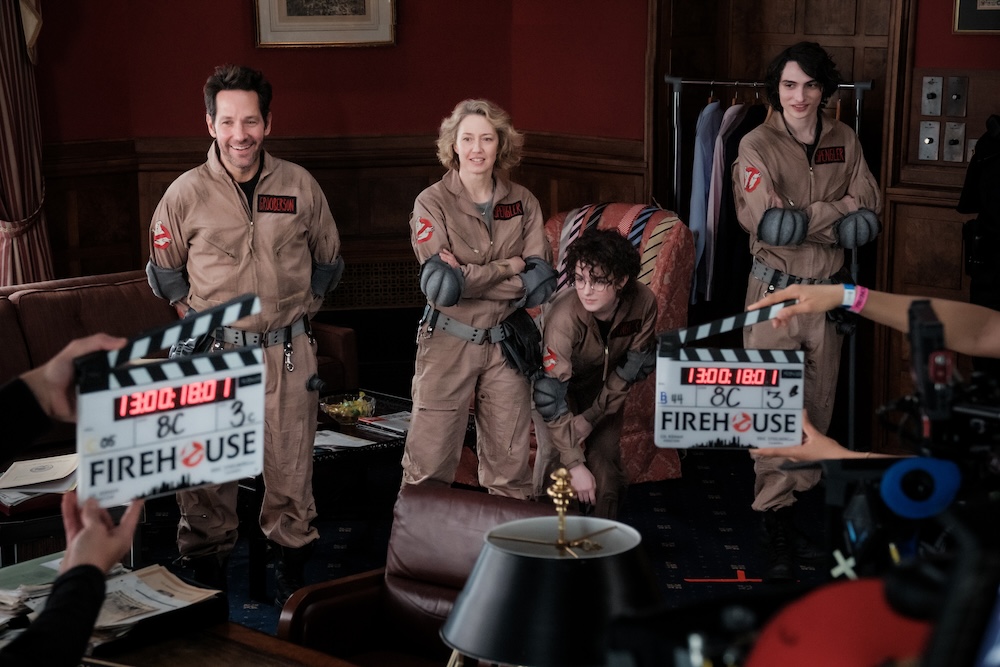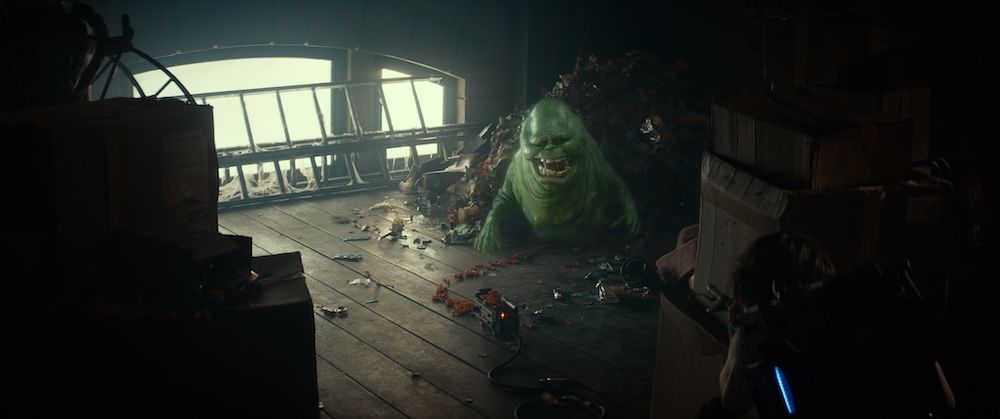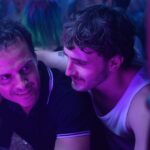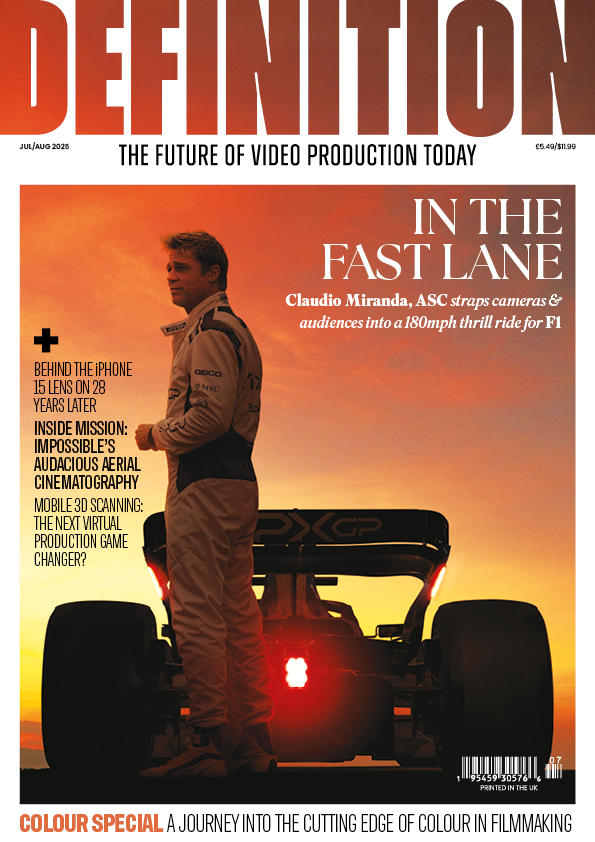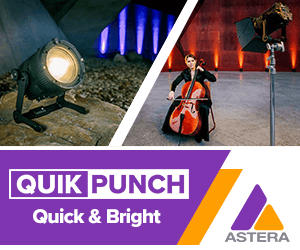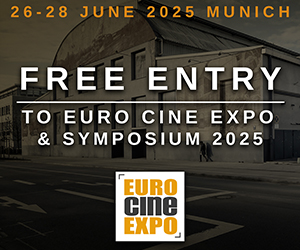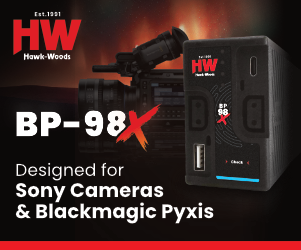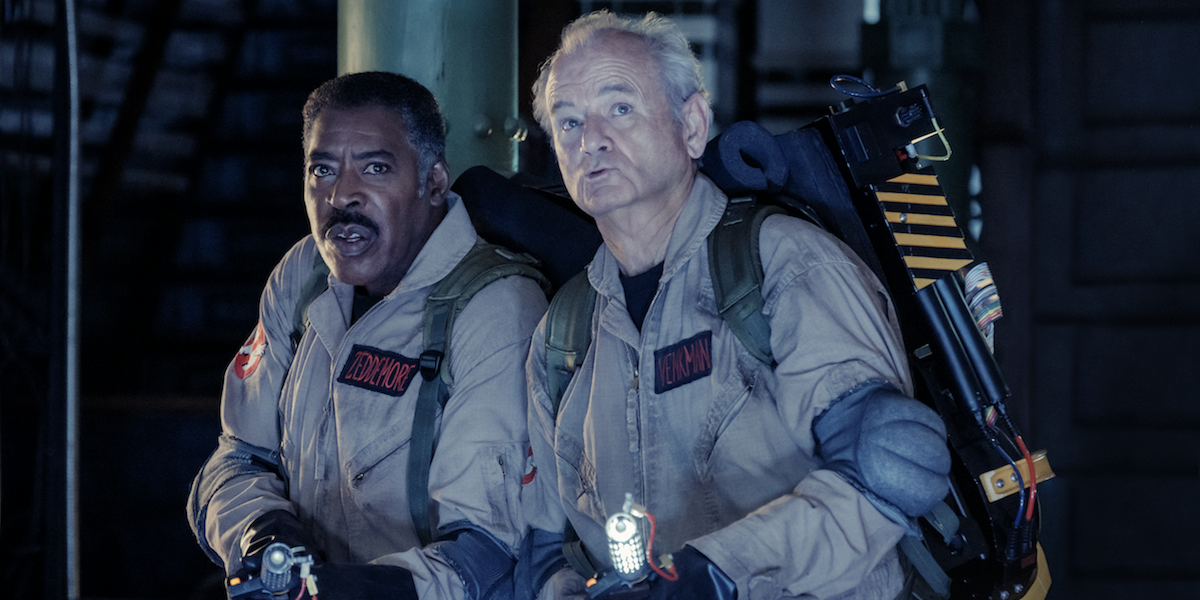
Cold as ice: Ghostbusters
Posted on Mar 4, 2024
Eric Steelberg, ASC spills the ectoplasm on Frozen Empire, the new Ghostbusters film hitting theatres in March
Words Adrian Pennington
In Ghostbusters: Frozen Empire, the Spengler family returns to where it all started – the iconic New York City firehouse – to team up with the original Ghostbusters. Which is just as well, since supernatural forces are about to unleash another ice age. It’s the second feature in the franchise for Eric Steelberg, ASC, his first with director Gil Kenan and his tenth collaboration with Jason Reitman (a producer on this film) following films including Up in the Air, Young Adult, Juno and Ghostbusters: Afterlife.
“Without a doubt, the biggest creative challenge was filming this movie on stages and sets in London, trying to make it look like New York,” begins Steelberg. “We knew it was time to bring the Ghostbusters back to their hometown, but the scale and scope of the movie required production to look elsewhere for principal photography, with a smaller second unit handling exteriors in New York.” Blending those two places, matching the light and feel an ocean apart, was something that he had never attempted before.
“I wanted to carry over the visual sensibility of Ghostbusters: Afterlife, so it felt like that story continued, but also set it apart and embraced everything that is great about New York City. We went from a very western horizontal frame [used for the Oklahoma setting of Afterlife] to a place turned 90°, with everything vertical.
“I looked to the first two Ghostbusters films, from 1984 and 1989, to remind myself of compositions that worked well in an anamorphic format. The density of the city made for exciting opportunities in our Ecto-1 car chase that we just didn’t have previously.”
Afterlife’s warmer colour palette, which made perfect sense for summer on the plains, needed to feel more like the ‘hot sun and cool skylight’ you would find in urban canyons.
One of the keys to the success of the franchise is its mix of comedy, sci-fi and horror. The new film is built around that same trifecta, with Steelberg required to translate it to screen in collaboration with production designer Eve Stewart and special effects supervisor John Van Der Pool. “Gil and Jason wrote both scripts, so it should hopefully feel just as effective,” he says. “One other notable difference was the amount of interiors and darker lighting introduced. Keeping that interesting and fun, while hopefully sucking people into a little bit of uneasiness and tension, was crucial.”
He retained the same ARRI ALEXA LF and Panavision T Series anamorphic package from Afterlife to maintain that visual recipe. Steelberg made lens tests at Panavision UK to show Kenan why he preferred the format.
“He didn’t take much convincing. And it was a great way for us to start our creative process and learn one another’s aesthetic preferences. Afterlife was the first film where I used that combination, and I continued it on [Marvel’s] Hawkeye. Honestly, there’s something about the combination that just says ‘cinema’. Frozen Empire is a movie that’s tailor-made for a big audience and meant to be seen theatrically – and large format anamorphic, with ARRI’s fantastic sensor and Panavision’s exceptional glass… I just can’t think of a better match for the way I shoot and see!”
Principal photography was on new stages at Shinfield and Winnersh. The stage at Shinfield, where they built the entire interior/exterior of the firehouse, was a construction zone while filming. “We were waiting for the foundation to dry so we could start construction the moment it was ready,” he reports.
A small splinter unit picked up shots in Canary Wharf to double as midtown Manhattan for some city life. A sizeable second unit handled exterior VFX plates and driving shots in New York City, with DOP Igor Meglic “doing a fantastic job of keeping the vibe we were establishing in the UK.”
Scouting was handled virtually between the two units after the director, DOP and producers had scouted New York in prep. The New York library exterior was a partial build in the studio parking lot, surrounded by blue screens, and a scene of New York firefighters set at the turn of the century was filmed at the Rothschild estate in Tring.
Steelberg is particularly proud of scenes shot in the firehouse, which actually comprise a large part of the movie. “It was an enormous set, and so iconic,” he explains. “Levels of it were spread across four stages. It’s something I desperately did not want to mess up. It was such a fixture of the original two movies and people are so familiar with it, I needed to make sure it looked and felt familiar. And since so much happens to that location, it becomes a character itself and has its own arc.
“We spend a lot of time coming up with lighting plans for various sequences and scenes, but always remembered we had to maintain its identity,” he continues. “It’s somewhat easy for me to have an idea, or series of ideas, which can be very complicated, but my gaffer Mark Taylor and his team went above and beyond executing it all, as did our lab set. Gil had specific ideas of what he wanted that to look like at various stages, and the lighting team pulled it off.”
Steelberg was just seven when the original Ghostbusters came out in 1984, but he remembers it all too well. “I was scared to death… terrified!” he exclaims. “In fact, it took years for me to watch it again on home video because of how scared I was. Those terror dogs – they weren’t joking around.”
First meeting as teenagers, his relationship with Jason Reitman spans decades and multiple projects. “We were friends before we became filmmakers. We have a lot of similar tastes in films and grew up going to the same theatres, influenced by the same filmmakers. We allow one another to meander through storytelling attempts with full support. There’s no judgement.
“Ultimately, we always want the same thing,” he concludes. “To tell the best story we know how to using our individual strengths, which happen to complement one another exceptionally well.”
This story appears in the March issue of Definition. Read the full magazine here.

